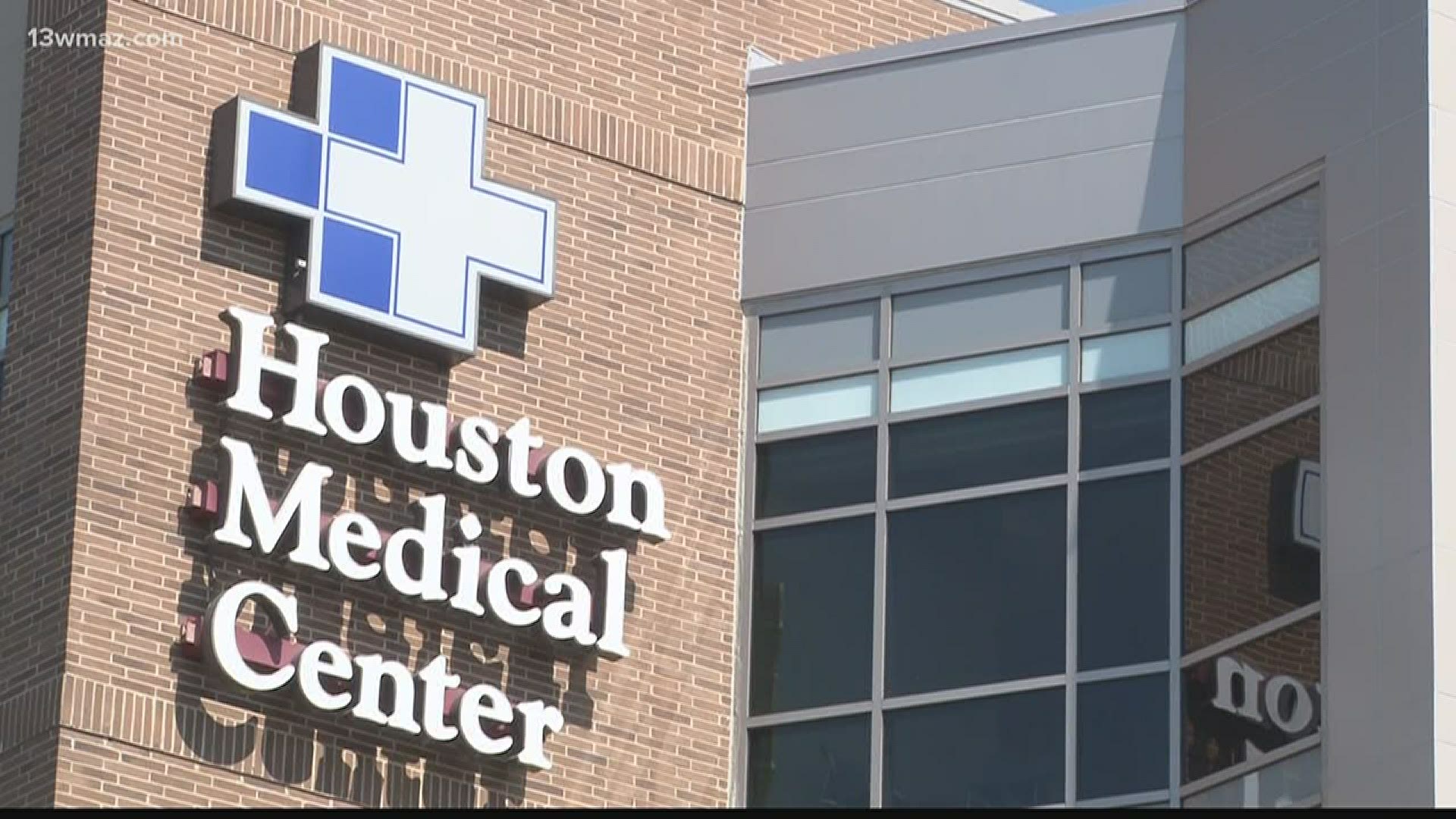MACON, Ga. — Coliseum Health system CEO Stephen Daugherty says, during the pandemic, more critical care beds are empty in his hospitals than usual.
"Typically we're 80, 85 percent capacity in the critical care beds when we're not in a pandemic," he said.
Now, they're at about 50 percent.
He says Coliseum has 40 critical care beds and can add 10 more in surge capacity.
Right now, only about 20 beds are filled. He estimates 10 are being used for COVID-19 patients and the remaining 10 have people with other medical issues.
That's significantly less full than during normal times of operation
"As I'm talking to you today," said Daugherty, "that's a true statement."
The CEO says the freeze on most surgical procedures led the drop off.
That information seems to contradict a series of reports from the Georgia Emergency Management Agency (GEMA).
For the past seven days, GEMA has released daily reports tallying "essential elements" at medical facilities across the state.
One of the elements is critical care beds.
GEMA reports the data by region. Bibb, Houston, Peach, and several other counties fall into Region F.
According to GEMA, over the last seven days, 89 percent of Region F's critical care beds have been full on average.
About 10 percent have been available, on average.
13WMAZ checked with GEMA to verify the data in the reports.
We wanted to make sure the totals GEMA used accurately represent all the beds available in the area.
"Assuming some hospitals in Region F have surge capacity to increase their critical care beds if needed," we asked "is that surge capacity included in GEMA’s calculation of critical care bed capacity in the region?"
GEMA spokesperson Lisa Rodriguez-Presley says the answer is yes.
"That is correct," she said.
Presley-Rodriguez noted GEMA's data comes from the Georgia Department of Public Health, so we checked with them too.
DPH spokesperson Eric Jones cautioned the data only "reflects a recent snapshot of the overall situation as this cannot be reported in real time."
However, he also said "the information pertaining to hospital bed counts is accurate."
So how do you make sense of the seemingly contradictory information?
Rodriguez-Presley said while Coliseum might not be too full, other hospitals in the region could be seeing higher volume.
"What is reality for one hospital, that hospital that's across town may be experiencing something completely different," said the GEMA spokesperson.
Determining which hospitals are experiencing higher volume is tough, though.
While Coliseum readily shares their data, Navicent Health and Houston Healthcare declined repeated requests to say how many critical care beds they have available.
They also declined multiple invitations to on-camera interviews.
In an emailed statement, Navicent said they have "appropriate" capacity.
Houston Healthcare said they are meeting "the needs" of their patients.
Neither hospital system provided numbers on their current critical care bed capacity.
The full statements from both hospitals are copied below.
Navicent Health
"Navicent Health manages only a portion of the hospitals reporting in each region - four of 13 hospitals in Region F and one of nine hospitals in Region H. We are not positioned to speak for the entire region, or for GEMA. Any questions regarding GEMA’s reporting or the way they calculate their report should be referred directly to GEMA. It is important for WMAZ to understand that each hospital in each region provides a daily report to the state, and this report is a snapshot in time – the figures change frequently throughout the day as patients are admitted and discharged. Navicent Health is reporting our bed capacity daily to the state, and we currently have appropriate capacity to care for patients."
Houston Healthcare
"Houston Healthcare submits information daily to the Georgia Department of Community Health (DPH) and the National Health Safety Network (NHSN) as directed by governing agencies. The information provided to DPH and NHSN by each hospital in the region is a snapshot in time and may experience many fluctuations throughout the day. Any information GEMA may use in producing material would come from one of those sources. If you have a concern about something you saw in a GEMA document, you would need to follow up with them.
In addition, Houston Healthcare provides a daily update on our website. That information may be found on their website. . Thursday’s update is located here:
Houston Healthcare remains focused on delivering quality, compassionate care to the citizens of Central Georgia and we are meeting those needs every day.
At this time we do not have anyone available for you to interview."
RELATED: He fought COVID at the hospital that saved his life as a baby. Now, he's thanking doctors with $14K.
FACTS NOT FEAR | At 13WMAZ, we’re focusing our news coverage on the facts and not the fear around the coronavirus. To see our full coverage, visit our site section here: www.13wmaz.com/Coronavirus.
STAY UPDATED | Click here to subscribe to our Midday Minute newsletter and receive the latest headlines and information in your inbox every day.
Have a news tip? Email news@13wmaz.com, or visit our Facebook page.

